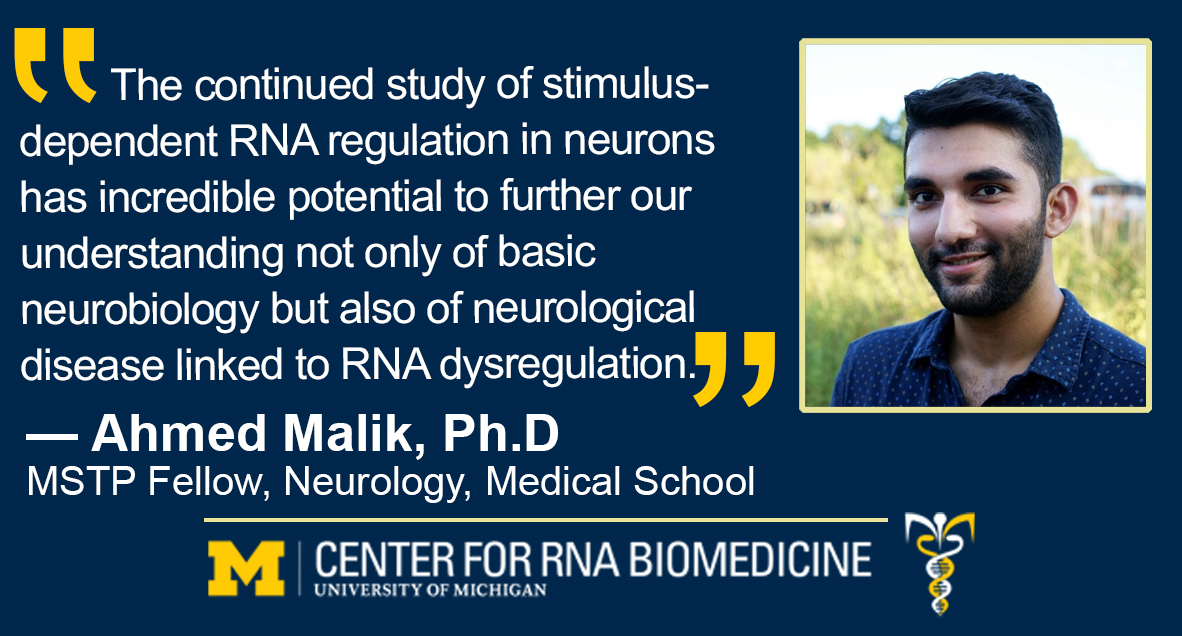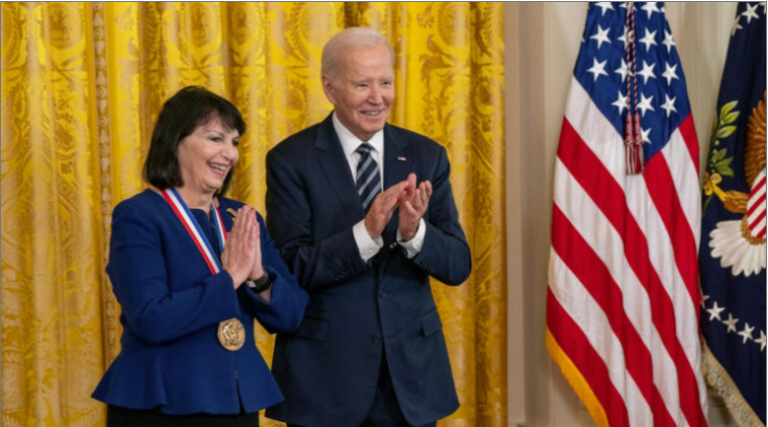RNA Featured Researcher – Ahmed Malik, Ph.D., Neuroscience Graduate Program and Neurology
Ahmed Malik, Ph.D.
MSTP fellow
Neuroscience Graduate Program and Department of Neurology
Medical School
Faculty-Mentor: Sami Barmada, M.D., Ph.D.
Barmada Lab
My dissertation work focused on the DNA- and RNA-binding protein Matrin 3. Mutations in this protein cause inherited neurodegenerative and muscular disease, and Matrin 3 pathology is also seen in sporadic disease without mutations, suggesting that it is integrally involved in pathogenesis. In particular, I focused on regulators of Matrin 3 localization, abundance, and toxicity in neurons, with special attention towards how neuronal activity controls the levels and RNA-binding activity of this protein and how pathogenic mutations disrupt these processes.
- How does RNA relate to your research interests, and why?
RNA-binding proteins regulate the entire life cycle of RNA molecules, from their birth as they are transcribed to their processing and maturation to their transport, translation, and ultimate degradation. The strong evidence linking RNA-binding proteins to the pathogenesis of ALS/FTD spectrum disease suggest widespread dysregulation of the RNAs these proteins control.
- How did you become interested in this topic?
A summer research program I did during my undergraduate education introduced me to the field of neurodegeneration, and I immediately became interested in the fundamental scientific questions underlying these devastating diseases and the potential for impacting human health. When I joined the Barmada lab, I thought that Matrin 3—a protein for which there is relatively little known—would be a fascinating area for my PhD work.
- Who/what brought you to science?
I didn’t have any exposure to research before college, but my undergraduate experiences working in a Down syndrome developmental biology lab and in a structural enzymology lab quickly showed me what a creative, opinionated, and human endeavor science is. I loved the process by which new knowledge is created, and I’m still hooked!
- What brought you to the University of Michigan?
University of Michigan has really impressive strengths in neurodegeneration that brought me here for MD/PhD. No matter what disorder, what model system, or what approaches you’re interested in, you can find faculty here working on exciting, interdisciplinary projects. This critical mass has been a huge help for me over the past few years, since it makes the barrier so low for collaborating and bouncing ideas off other scientists. In addition, I love the town of Ann Arbor and have found it to be a great place to spend my years of MD/PhD training.
- What are the main challenges/concerns to achieve your professional goals?
The transitions between roles! Now that my time in the lab is wrapping up and I’m heading back to the clinical portion of medical school, I’m being confronted with just how different of a skillset Ph.D. and M.D. training utilize. Finishing a dissertation is an exercise in digging deep into one area over years, while being a medical student requires broad familiarity with medicine and has you switching clinical services often—it seems like just as you’re getting comfortable it’s time to do something different!
- What’s your favorite hobby?
I love any and all Ann Arbor events—whether sports-related, food/art festivals, or music!


